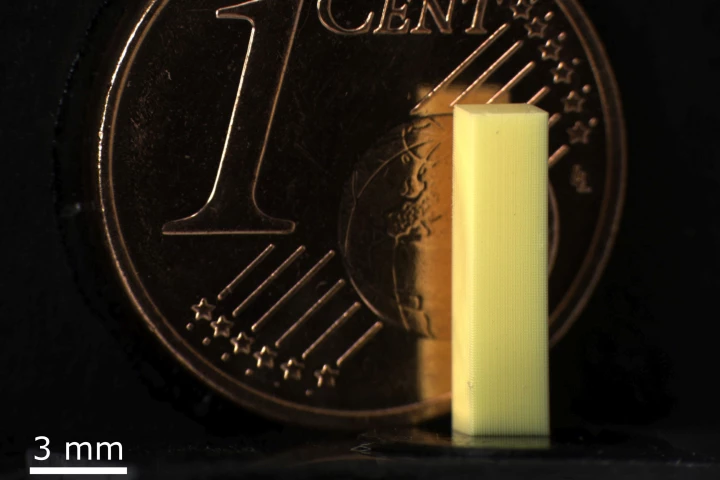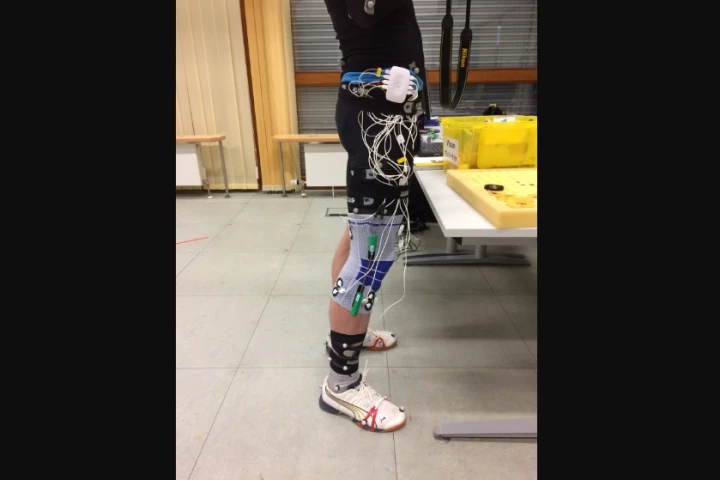Karlsruhe Institute of Technology
-
While large 3D-printed objects such as buildings may get a lot of attention, the technology is also used to produce tiny, intricate objects. The latter could soon be whipped up faster and in more detail than ever, thanks to a new printing system.
-
The most common form of arthritis, arthrosis is caused by wear and tear on joint cartilage. And while some exercise helps, too much just makes things worse. That's where a new "smart" knee bandage will come in, by providing real-time strain readings.
-
With an ability to stiffen up under a certain type of light and go soft in the dark, a new dynamic material shows particular promise for the world of 3D printing, where it could be used as a temporary support for complex structures that melts away when the job is done.
-
It's not enough to just reduce our carbon dioxide emissions now – we need to remove some of what’s already in the atmosphere. Now, researchers at KIT have developed a simple way to turn the troublesome gas into a useful resource: by converting it into the “wonder” material graphene.
-
They've been used as a rubber additive, a carbon-capture medium and a bioplastic ingredient. Now, discarded eggshells may have yet another use. Scientists have determined that they could be utilized in an eco-friendly and inexpensive form of energy storage.
-
Even a single fall can seriously impact a senior, so it's best if such accidents can be kept from occurring in the first place. A new wrist-worn sensor, developed by scientists at Germany's Karlsruhe Institute of Technology (KIT), has been designed for just such a purpose.
-
Electronic waste is a growing problem, and if we're ever going to get on top of it, then we need to be able to recycle electronic devices as thoroughly as possible. Thanks to a new temperature-sensitive adhesive, doing so could soon be easier than ever.
-
It's important for us to be able to detect odors such as those emitted by spoiled food. However, what if there were a low-cost "electronic nose" that was better at detecting those things, providing us with an earlier warning? That's what's being developed at the Karlsruhe Institute of Technology.
-
Could renewable sources meet 100 percent of our energy demand? Yes, according to new research which scrutinises the arguments against. “There are no roadblocks on the way to a 100-percent renewable future,” the research finds.
-
At any mass-casualty incident, triage is of the utmost importance – prioritizing which victims are treated first, based on the severity of their injuries. Developed by scientists from the Karlsruhe Institute of Technology, the RescueWave system is designed to make the process much more efficient.
-
If you're using the sun to power a mobile device, it only makes sense to put the solar cells on something you're wearing that will be receiving a lot of sunlight. With that in mind, researchers have created a pair of sunglasses that generate electricity via solar cells that double as their lenses.
-
The 3D-printing of glass objects has been achieved before – we've seen it done by extruding molten glass, and even via a modern take on an ancient Egyptian technique. A new process, however, is claimed to produce complex glass items of a higher quality than has ever previously been possible.
Load More











